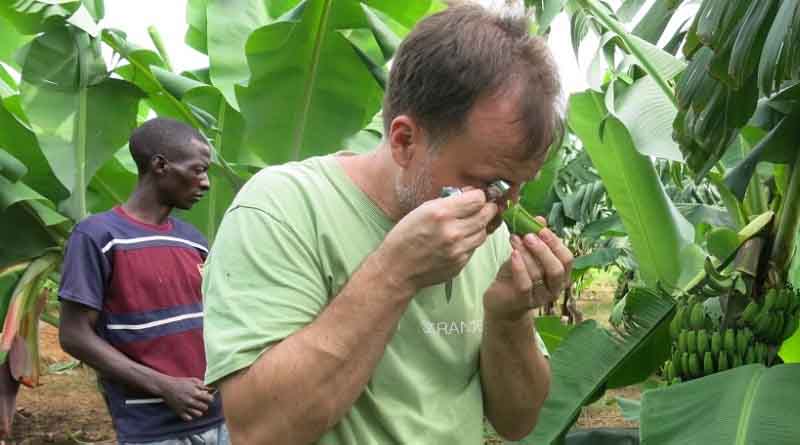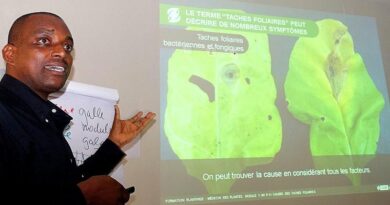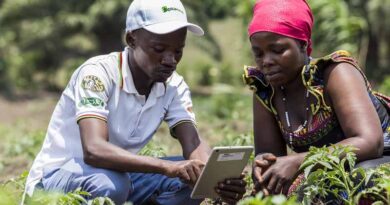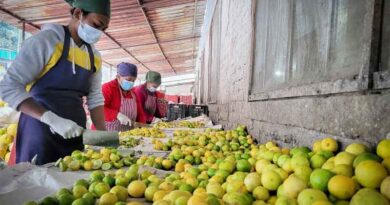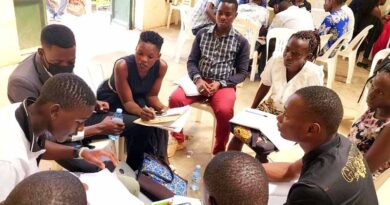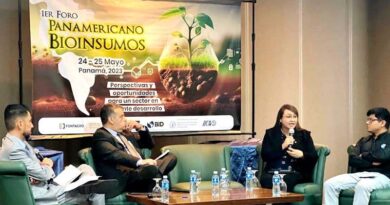CABI-led Plantwise training improves plant doctors’ diagnostic skills by at least 10%, new study shows
19 September 2023, Burundi: Many smallholder farmers around the world rely on good agricultural extension services to successfully grow their crops. Correct field diagnoses of plant health problems are an essential starting point, writes Dr Stefan Toepfer and Wayne Coles.
However, some agri-cultural extension workers may have had limited capacity building in field diagnosis during their agricultural education, and many may have had limited or no continuing education possibilities during their advisory work life.
Increase rural livelihoods and food security
The aim of the Plantwise programme, which is led by CABI together with national partners in more than 35 countries, is to improve rural livelihoods and food security. It does this by improving agricultural extension services that help farmers grow more and lose less to crop pests and diseases.
This is achieved by establishing sustainable networks of local plant clinics, run by trained plant doctors, where farmers receive practical plant health advice.
Plantwise provides short and inexpensive in-service training agricultural extension practitioners that are intended to improve the quality of field diagnosis and management of plant health problems. Upon successful completion, those certified plant doctors then establish a plant clinic in places easily accessible to a maximum number of farmers.
Until recently though, it had not been proven how much these short in-service Plantwise trainings would indeed improve the skills and capacities of extension practitioners, such as plant doctors.
New study proves knowledge and skills increase
A new study, published in the journal Sustainability and led by Dr Stefan Toepfer, (Integrated Crop Management Advisor at CABI Switzerland) and Burundian and Kenyan experts, revealed such courses can increase knowledge and skills in field diagnosis of plant health issues.
The researchers – using empirical data from before-versus-end and after-course analysis – revealed that Plantwise courses increase knowledge and skills in field diagnosis by around 20 percentage points during the training. And, more importantly, a near 10% improve can still be detected eight to 19 months after training.
Positively, CABI has also been showing that better diagnosis of plant health problems leads to better pest management advice and, subsequently, better pest management on a farm. This improves crop production and rural livelihoods and reduces risks to farmers, consumers, and the environment.
Repeated in-service training may be beneficial
The results suggest that repeated in-service training for agricultural practitioners may be beneficial. Investments in such training seem worthwhile, the scientists say, since better diagnosis can lead to more appropriate pest management advice and judicious use of pesticides.
Dr Toepfer, who is also one of CABI’s Plantwise master trainers, said, “It is impressive that adult education, can, even if provided as a rather short in-service training, can led to sustainable improvement of skills of the participants involved. This is encouraging and calls for more regular trainings.”
The study was conducted in Burundi and financed by Nuffic – the Dutch organisation for internationalisation in education – and the Embassy of the Netherlands in Burundi.
Also Read: Breakthrough in India’s marine fisheries: ICAR-CMFRI unearths genome secrets of Indian Oil Sardine
(For Latest Agriculture News & Updates, follow Krishak Jagat on Google News)

